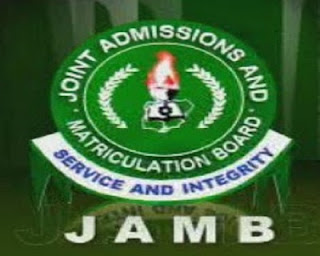 THE Joint Admission and Matriculation Board has slashed the minimum national cut-off point for admissions into universities and other degree awarding institutions in Nigeria at 120 in line with the new flexible admission policy of the Board.
THE Joint Admission and Matriculation Board has slashed the minimum national cut-off point for admissions into universities and other degree awarding institutions in Nigeria at 120 in line with the new flexible admission policy of the Board.
The Board has also pegged the cut-off points for Polytechnics and Colleges of Education at 100, while that of the Monotechnics is fixed tentatively at 110.
This came as the Federal Government has made U-turn on the cancellation of the Post Unified Tertiary Matriculation Examination (Post-UTME) by reintroducing the conduct of the examination by tertiary institutions.
These were the outcome of the 2017 Combined Policy meeting for 2017/2018 admissions into tertiary institutions in the country.
While the Registrar and Chief Executive of JAMB, Professor Ishaq Oloyede, announced the cut-off points as agreed by stakeholders at the policy meeting comprising Vice Chancellors, Provosts and Rectors among other stakeholders, the Minister of Education, Malam Adamu Adamu, announced the lifting of ban on conduct of post-UTME.
The benchmark set last year for all the institutions including universities, colleges of education and Polytechnics, was 180, which the stakeholders at the meeting argued was unrealistic.
Oloyede, particularly noted that it was wrong for Diploma awarding institutions, which is for two years duration, to be subject to the same minimum benchmark with that of degree awarding institutions that is four or five years.
The Minister admitted that he ordered the cancellation of the conduct of the post-UTME error last year, saying that was in breach of the university autonomy that confers power on the Senate of the institutions to admit students.
Adamu, who warned that the post-UTME fee charged by institutions for the conduct of aptitude test, should not exceed N2,000, said part of the reasons why he banned it was that many institutions were using it to extort money from candidates and massive irregularities.
He reiterated the zero-tolerance stance of the current and warned the institutions against collecting more than the approved N2,000 from applicants.
He explained that the 2016 admission process was a huge success, while expressing optimism that that government is working assiduously to make that of 2017 better.
Adamu noted that government is also making efforts to expand access and ensure equality in education sector.
He expressed optimism that a substantial number of candidates who sat for the 2017 UTME would be able to gain admissions into tertiary institution based on the flexible policy introduced by JAMB. He disclosed that his Office has received many applications for establishment of more private universities, which are already being screened for the approval the Federal government, saying Nigeria needs more universities to cater for the admission requirement of candidates.
The Minister expressed the commitment of the Federal Government to remove the dichotomy between the Higher National Diploma (HND) and Bachelor of Science (B.Sc.) degree, explaining that the bill for an Act eliminating the dichotomy has passed through second reading in the National Assembly.
He commended the Registrar of JAMB, Prof Oloyede, for transparency and accountability introduced by his leadership into the Board, saying the JAMB was able to remit over N5billion into the Federation Account, the figure, he said was far more than what the Board had remitted into the Federation Account since establishment of the agency years ago.
Meanwhile, Oloyede said the Board has introduced Central Admission Processing System (CAPs) to streamline admission processes among institutions while it would also address challenges associated with the old approach.
He also said that Institutions could conduct dual mode system which involves both manual and the newly introduced system CAPs.
He advocated for dynamic educational policy as related to admissions.
“All over the world there is agitation for dynamic educational policy, Jamb only admits for National Diploma not Higher National Diploma so why should we use the same requirement for ND and B.Sc that is unreasonable parity.


0 Comments